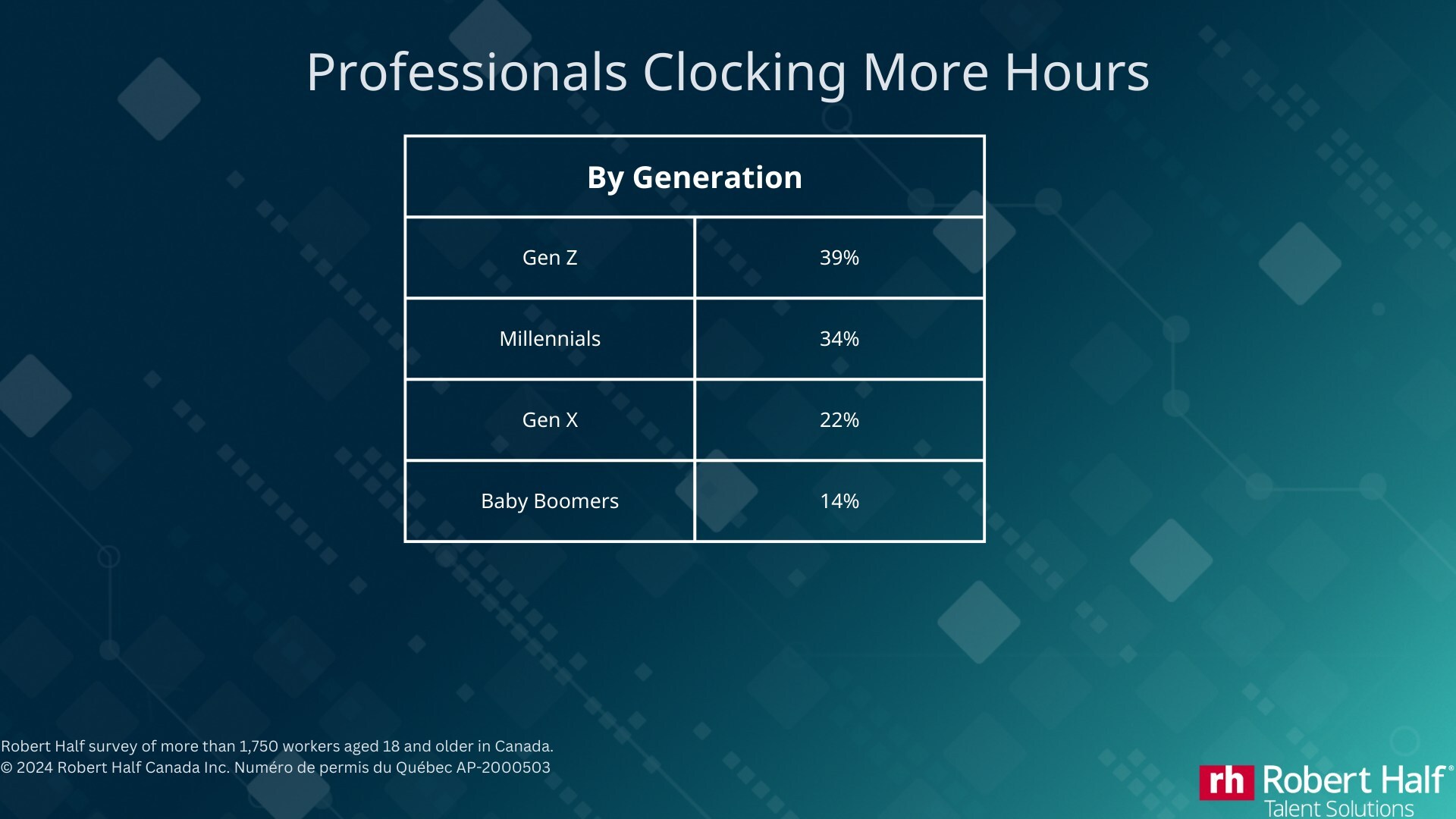
Most managers say workers are more productive compared to last year, but employees claim to be logging longer hours

Productivity seems to have risen compared to a year ago – according to a recent report.
Overall, 68% of hiring managers report an increase in employee productivity compared to one year ago.
Far fewer are those who report no change, at 21%, while only 11% report decreased productivity on their teams.
Hiring managers say that the steps they've taken that most contributed to higher productivity are that:
Here’s how to keep performance high and workers happy, according to Dayforce.
Flexible work setups are helping workers become more productive, according to a Robert Half’s survey of 1,800 managers and more than 1,750 workers across Canada.
Overall, over half (52%) of workers say hybrid work options increase their productivity. Over two in five (42%) say the same about flexible work hours.
But despite the promise of increased productivity with the use of artificial intelligence (AI) at work, only three in 10 professionals report increased efficiency due to the implementation of emerging technologies, such as generative AI.
Gen Z workers are the most likely to have improved productivity using AI (47%), followed by millennials (32%). Less than a quarter of Gen X professionals (23%) feel that generative AI has increased their efficiency, and only 14% of baby boomers.
Also, workers appear to be logging longer hours at work. This is true across generations.

Source: Robert Half
"Increased productivity is very positive news for managers, businesses, and professionals alike," says Koula Vasilopoulos, senior managing director of Robert Half Canada.
"Businesses who maintain necessary staffing levels, adopt new technologies, and invest in learning and development training for their staff see the benefits in increased engagement and productivity. However, this needs to be balanced with a positive work environment including reasonable hours and flexibility, as working longer hours and not establishing work-life balance can quickly offset productivity gains through burnout and turnover."
More than half (52%) of IT decision-makers whose organizations have implemented AI for specific applications believe the process to be easy, according to a previous CDW report. However, they are less confident in their organization’s ability to implement these things effectively.
Work-from-home (WFH) employees are saving up to two hours per day on average in commuting and personal care compared to their on-site peers.